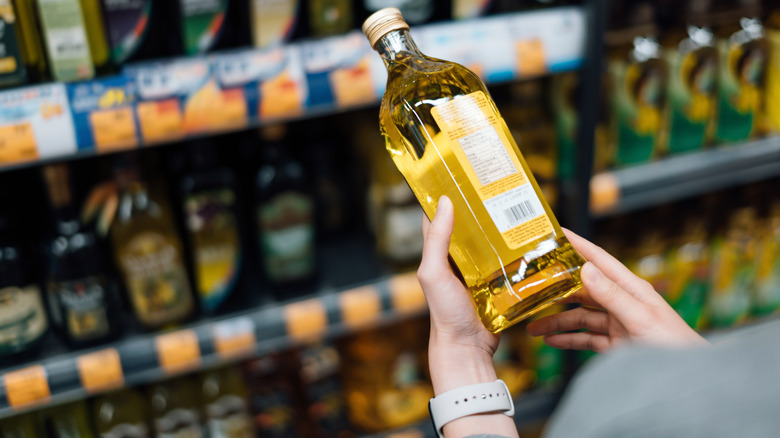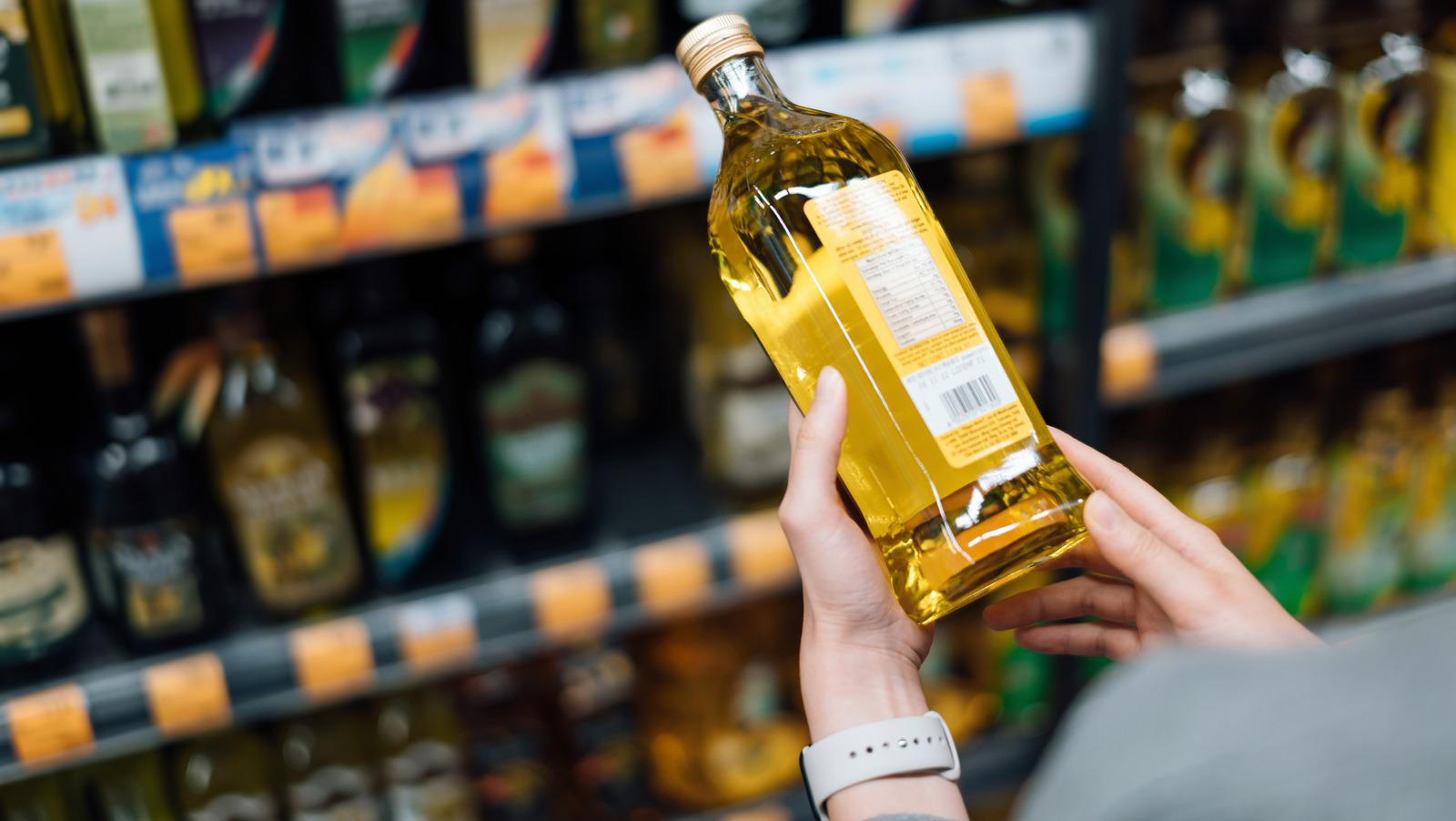The Costco Kirkland Signature Olive Oil You Should Leave At The Store

D3sign/Getty Images
Costco's Kirkland Signature products are often comparable to name brands where quality is concerned. However, while shoppers might heap praise on the chain's peanut butter pretzels and granola, not all of Costco's private label goods are bona fide winners. Take the Kirkland Signature Olive Oil, which comes in 3-liter bottles and retails for $22.49 at the warehouse retail chain. In our ranking of Kirkland Signature olive oils, we found this product quite disappointing when compared to the store's other offerings. According to our reviewer, this option "had the lightest color ... the flavor is incredibly mellow without the olive overtones." On the other hand, the item in first place, Kirkland Signature Organic Extra Virgin Olive Oil, "had the best balance of flavor and versatility" out of all the varieties available at the chain.
Olive oil is used for both cooking and finishing dishes, which makes the flavor of paramount importance. Because the Kirkland Signature brand is a little puny in that department, it's not going to provide the bold taste you expect when using it to finish soups and other foods. It's also quite costly when weighing its overall quality. Consider that at a competing retailer, 128-ounce containers of canola oil (which equals approximately 3.7 liters) could cost $13.99. Accordingly, shoppers might consider leveling up and purchasing one of Kirkland Signature's fancier olive oils or simply purchasing a cheaper cooking oil to avoid wasting their hard-earned bucks.
What to look for when determining olive oil flavor and quality
Our reviewer surmised that Costco's Kirkland Signature Olive Oil might lack quality due to the way it's processed. This variety consists of only 15% extra virgin olive oil, whereas the remaining percentage is refined. Extra virgin varieties undergo a process known as cold pressing, while refined options are subject to additional processes to eliminate impurities. Cold pressing allows the oil to retain the essence of olives, but refining can eliminate the character from the olive oil when heat and chemical processes are used to remove impurities.
The color of olive oil can tell you a lot about how the product tastes. Yellow varieties often have a livelier flavor profile, while green olive oil exhibits hints of grass and fruit. In fact, the flavor profile of popular brands varies greatly according to factors like ripeness at the time of harvest, location of the olive orchard, and how the oil was processed. Additionally, be mindful of clear plastic bottles (looking at you, Kirkland Signature Olive Oil). Those allow light to penetrate, which can lower antioxidant content and promote rancidness. Instead, look for dark containers made from glass and other systems that protect the product from environmental intrusions.



